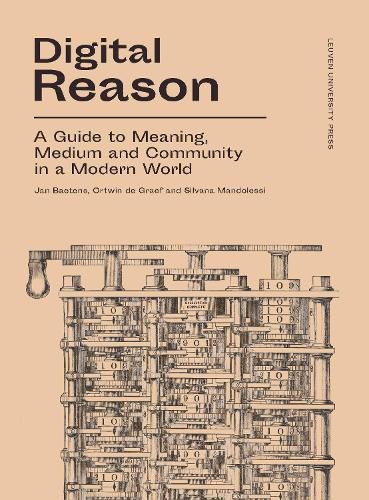Readings Newsletter
Become a Readings Member to make your shopping experience even easier.
Sign in or sign up for free!
You’re not far away from qualifying for FREE standard shipping within Australia
You’ve qualified for FREE standard shipping within Australia
The cart is loading…






Introductory and user-friendly textbook for scholars and students in the humanities
Multidisciplinary approach to digital culture
Cross-fertilization of three major perspectives: history of ideas, art, identity and memory studies
Includes a wide selection of examples and case studies with many suggestions for advanced study and reading
The digital revolution has changed our ways of thinking, working, writing, and living together. In this book the authors critically analyse the ways in which these new technologies have reshaped our world in numerous respects, ranging from politics, ideology, and philosophy over art and communication to memory and identity. The book challenges the customary view of a divide between analog and digital culture, claiming instead that human endeavour has always been characterized by certain forms and aspects of digital thinking, building, and communicating, and that essential parts of analog culture are still being reshaped by new digital technologies. It offers a multidisciplinary approach to digital reason, reflecting the diversity of humanities scholarship and its fundamental contribution to the ongoing changes in our current and future thinking and doing.
$9.00 standard shipping within Australia
FREE standard shipping within Australia for orders over $100.00
Express & International shipping calculated at checkout
Introductory and user-friendly textbook for scholars and students in the humanities
Multidisciplinary approach to digital culture
Cross-fertilization of three major perspectives: history of ideas, art, identity and memory studies
Includes a wide selection of examples and case studies with many suggestions for advanced study and reading
The digital revolution has changed our ways of thinking, working, writing, and living together. In this book the authors critically analyse the ways in which these new technologies have reshaped our world in numerous respects, ranging from politics, ideology, and philosophy over art and communication to memory and identity. The book challenges the customary view of a divide between analog and digital culture, claiming instead that human endeavour has always been characterized by certain forms and aspects of digital thinking, building, and communicating, and that essential parts of analog culture are still being reshaped by new digital technologies. It offers a multidisciplinary approach to digital reason, reflecting the diversity of humanities scholarship and its fundamental contribution to the ongoing changes in our current and future thinking and doing.